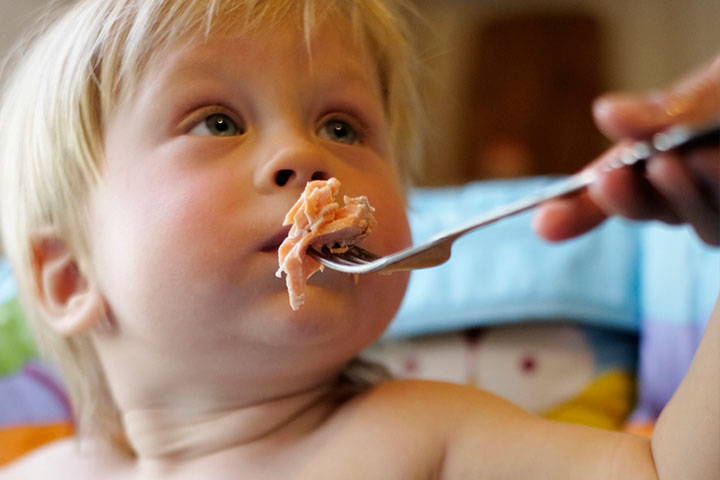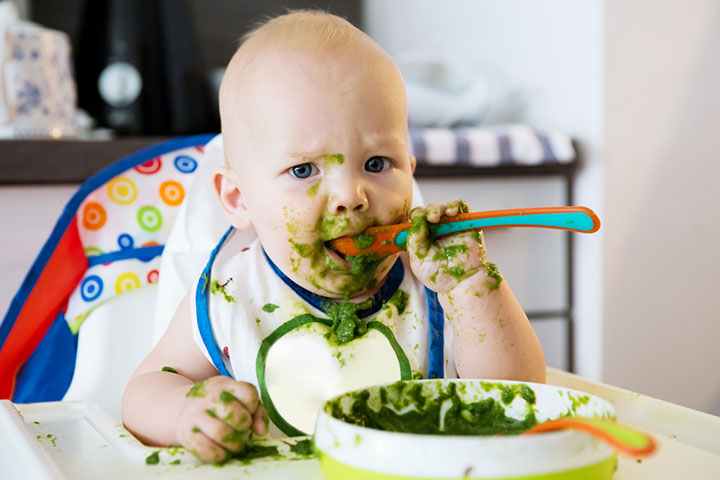
Image: iStock
Congratulations, your baby is finally ready to try out solid foods! And as exciting as this time can be, it can also come with its fair share of challenges. Transitioning from breastmilk to solid foods may not be as seamless as you expected. Especially when this means preparing meals specifically for your picky baby. This is why several parents opt to buy baby food from stores. But this may not be the solution you were hoping for. Over the last couple of years reports have surfaced about heavy metals and toxins being present in baby food products, making them harmful for your little one. So why take the risk when you can make safe, delicious and brain-boosting baby food at home? If you’ve been putting off preparing your tiny tot’s meals because you don’t know what ingredients to use or how to get your baby to chomp down on basic ingredients then this is the article for you. Read on to know them all!
1. Eggs
Some parents are skeptical of giving their baby eggs to try out, but you shouldn’t be. Not only are eggs packed with nutrients that your baby needs, but they are also a favorite amongst kids. Eggs are filled with goodies like choline, vitamin B12 and protein (1). Choline is a special ingredient to take under consideration and start introducing to your little one early on as it is great for brain development and is known to improve cognitive functioning. You can give any child under the age of 8 around one or two whole eggs for optimal choline intake (2). Eggs are also a great source of protein and will help strengthen their baby muscles! And they are super easy to prepare as well. Simply boil the eggs in water until they are fully cooked, cut them in halves and let your little one go to town!
2. Seafood
This is another one that scares parents but shouldn’t. As long as you source your fish from a safe and fresh course, your baby can absolutely enjoy their taste of seafood. In fact, we recommended it as oily fish and other seafood are great for brain development. They are full of nutrients like zinc, choline, iron, protein and omega 3 fats (3)! The only thing you need to be careful of is to opt for an option with low levels of mercury, as too much mercury can have harmful effects on your baby’s still developing nervous system (4). But you can still offer them things like shrimp, crab, salmon and cod. And don’t worry, your child is not too young to eat seafood. Even if they are under 3 years of age, they can have about an ounce around twice or thrice a week (5).
3. Leafy Green Veggies
If you’re vegan or vegetarian and want your baby to be the same, then there’s no need to panic just because your little one can’t eat meat. There are plenty of ways to ensure that your baby gets enough protein along with all the other brain friendly nutrients they need. One such way is left greens. Greens like spinach and kale are a great source of iron and folate, making them the perfect ingredient to add in smoothies and pasta sauces. Research shows that kids who eat a good amount of folate actually have better cognitive function than kids who don’t consume it enough (6). Iron also plays an integral role in the development of the hippocampus which is the part of the brain that is responsible for memory and learning (7).
4. Yogurt
This is another easy option to introduce into your child’s meals that also happens to support brain development. Yogurt contains important nutrients like protein, zinc, choline and iodine. This is crucial as iodine is used by your child’s body to produce the thyroid hormone which plays a vital role in their neurological development as well as their brain processes (8). Make sure that your child consumes enough iodine as even mild iodine deficiency can negatively affect your child’s cognitive function and their ability to reason.
5. Opt For Veggies Over Fruits
Another tip is to opt for veggies instead of giving your little ones fruit purees as they can be high in fruit sugars. Keep in mind that your baby, for their first 18 months, is only starting to develop their palate and figure out what a regular meal for them looks and tastes like. So this is your opportunity to introduce nutrition dense food so that they prefer to eat healthy even later on in life. You can also explore exotic veggies that you haven’t tried before. The greater the variety the better.
Preparing and feeding your little one solids doesn’t have to be a task. Even some of these ready to eat and easy to prepare options make up the best meals for your baby. Happy parenting!
















